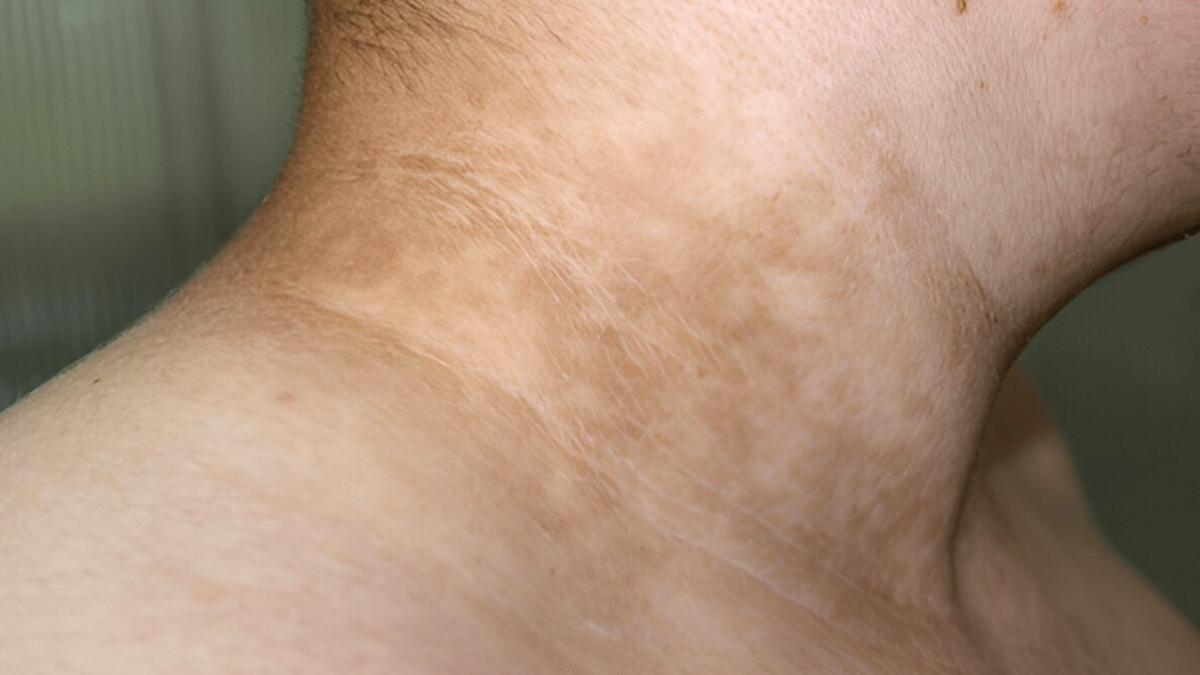
Have you ever looked in the mirror and wondered why the skin on your neck looks darker than the rest of your body? This is something many people notice but rarely discuss. Often mistaken for poor hygiene or just 'pigmentation,' a dark, velvety patch on the neck, armpits, or even groin area could be a condition known as 'Acanthosis Nigricans'. It’s not just a skin thing; it could be your body’s way of nudging you to pay attention to what’s happening inside, especially around insulin, weight, and hormones.
Table of Content:-
We spoke to Dr Pranjal Joshi, MBBS, MD (Dermatology), FIADVL (Dermatosurgery), FACSI (Lasers), Varsity Skin and Wellness Clinic, Malviya Nagar, New Delhi, who explained acanthosis nigricans, its causes, symptoms, and treatment.
What Is Acanthosis Nigricans?

Acanthosis nigricans is a condition in which some parts of the body become darkened, thickened, and occasionally raised. According to StatPearls, this type of hyperpigmentation features irregular borders and commonly appears in skin fold regions, such as the nape of the neck, armpits, and groin. It may also involve the thickening of the skin. While not harmful on its own, it may indicate underlying health issues, in particular concerning insulin use in the body.
Causes of Acanthosis Nigricans
Perhaps the most common cause of acanthosis nigricans is insulin resistance. This condition exists when the body is not using insulin properly. It can be seen in conditions, such as type 2 diabetes or Polycystic Ovarian Syndrome (PCOS). “There is a connection with obesity and excess weight that can predispose to this disorder. It can also be seen in rarer instances because of some hormonal disturbances, certain medications, or a rare internal malignancy,” added Dr Joshi.
Who Can Get It?

Both adults and children can be affected. It is more prevalent in individuals with a family history of diabetes, those who are overweight, or suffer from hormonal changes. The condition might also be manifested in children and teenagers, particularly during their puberty phase and when there are metabolic concerns.
Risk Factors for Acanthosis Nigricans
Such a condition can affect both children and adults. This disorder is more common in people with a family history of diabetes, who are obese, or suffer from a hormonal imbalance. Moreover, it may present itself in children and teenagers during their growth spurt especially those with certain metabolic disorders.
What Are The Next Steps?
“Although this condition is not dangerous, it could signify that one needs to monitor their blood sugar, body weight, and hormonal levels. Addressing these factors in tandem with proper diet, such as weight reduction, managing insulin resistance, or altering some medications, can assist in slowly improving the skin condition. A dermatologist can also prescribe topical creams for cosmetic enhancement,” explained Dr Joshi.
Treatment Options For Acanthosis Nigricans

1. Topical Medications
Retinoids, depigmenting agents and keratolytics can be used. In severe cases, oral medications may be required if associated with insulin resistance.
2. Chemical Peels
Customised chemical peels, such as glycolic acid, lactic acid, or salicylic acid can be used. They help exfoliate dead skin and stimulate collagen renewal. Typically, 2-3 sessions, spaced 2–3 weeks apart, can make a visible difference in colour and texture.
3. Lifestyle Modifications
A healthy diet, weight management, and regular exercise help in the improvement of long-term metabolic health.
When to See a Dermatologist
Dr Joshi concluded, "Patching and dark marking that is new or changes in size warrant medical intervention for you and your loved ones. Tackling the issue promptly greatly helps in managing the condition along with any potential health issues."
[Disclaimer: This article contains information provided by an expert and is for informational purposes only. Hence, we advise you to consult your professional if you are dealing with any health issue to avoid complications.]
Also watch this video
How we keep this article up to date:
We work with experts and keep a close eye on the latest in health and wellness. Whenever there is a new research or helpful information, we update our articles with accurate and useful advice.
Current Version